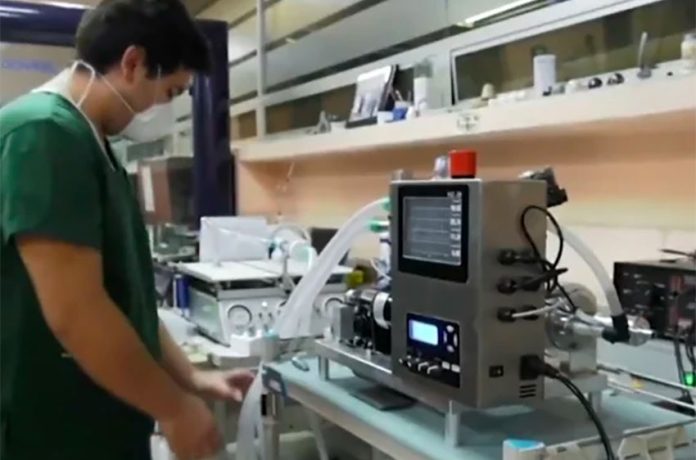After a month and a half of development, biomedical engineers at the National Institute of Health Sciences and Nutrition Salvador Zubirán are ready to roll out a new ventilator for the treatment of Covid-19 patients.
The engineers developed the VSZ-20 based on an older Mexican model and consulted with doctors to make sure their new version met needs specific to the treatment of coronavirus patients.
“We needed precision equipment that gives the exact pressure and volume of air we need from the ventilator,” said Guillermo Domínguez Cherit, deputy director of critical medicine at the institute, which is operated by the Ministry of Health.
“Having our own resource, developed in this country, offers the advantage of not having to be looking elsewhere,” said Cherit’s colleague David Kershenobich.
Nearly all the ventilator’s parts were made in Mexico to circumvent the possibility of shortages on the global market in the future.
Engineers tested the ventilators on artificial lungs, as well as healthy pigs and pigs with pneumonia. The VSZ-20 has been approved by the Commission for Protection Against Sanitary Risk (Cofepris) and is ready to be used on people. Some 1,500 ventilators will be produced immediately for distribution by the federal government.
Each unit costs US $10,000, which is significantly lower than the typical market price of US $30,000 to $50,000. The ventilators were manufactured and assembled with the help of a team from the beverage company Femsa, automotive component manufacturer Metalsa and the Monterrey Technological Institute.
“It is a very meticulous process,” said Carlos Guerra, Metalsa’s mechanical engineer, whose team worked long hours and weekends in order to get the prototype ready and will be producing the ventilators at their Nuevo León factory.
Another made-in-Mexico ventilator, scheduled for delivery May 15, has been delayed. The director of the National Council for Science and Technology (Conacyt) announced April 23 that at least 500 would be produced weekly, with the first delivery in mid-May.
The Ministry of Health said on Sunday that the machines had not yet been delivered.
Hospital occupancy in Mexico reached 39% yesterday, and 32% of all intensive care beds for critically ill patients requiring intubation were full. However, in hot spots those numbers are much higher. In Mexico City only 22% of intensive care beds are vacant, and in Guerrero that number is 40%, the news agency Infobae reported.
Source: Infobae (sp)
